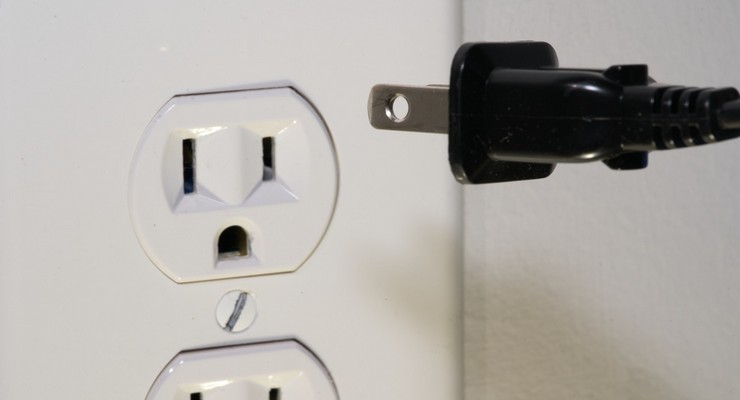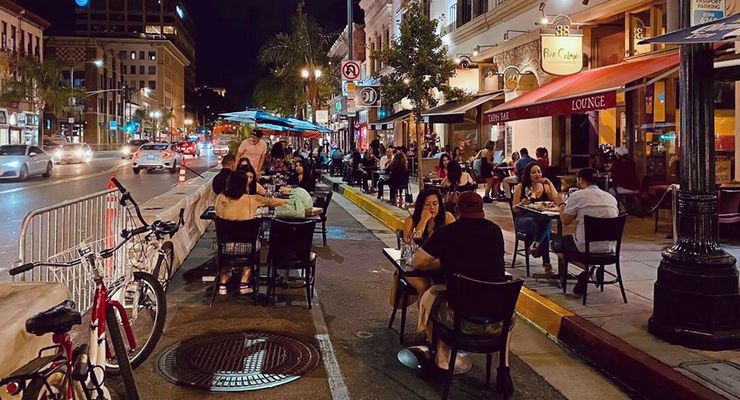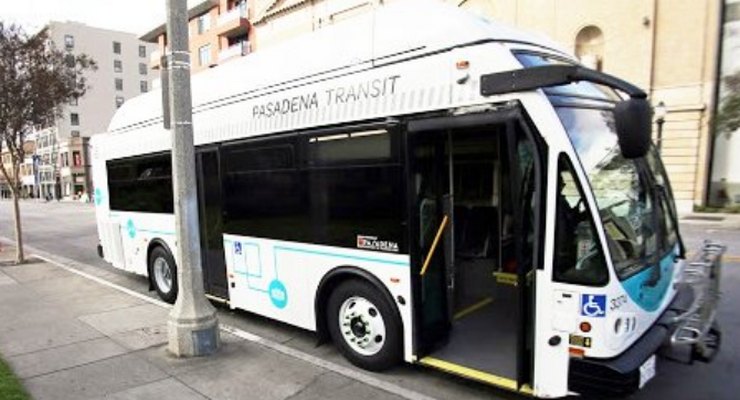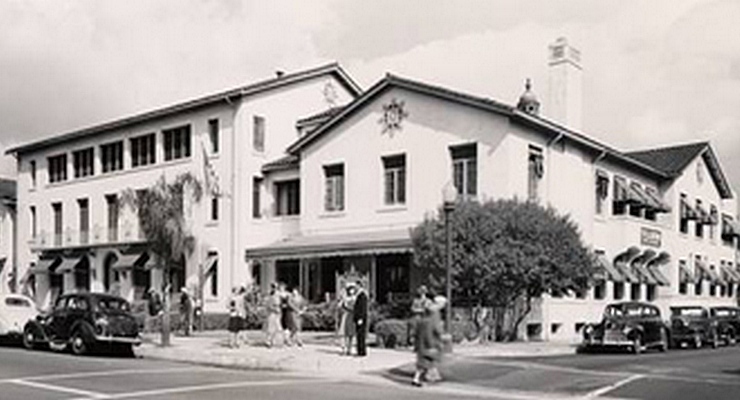
After acquiring the building under eminent domain 10 years ago for $8.3 million, the City Council on Monday took a forward step in finally solidifying a project for the city’s historically significant but long neglected YWCA building.
On Monday, the City Council unanimously voted to allow City Manager Steve Mermell to enter into exclusive negotiations with HRI Properties to develop a hotel at the dilapidated and long-shuttered Y site on North Marengo Avenue.
But council members agreed that it has taken far too long to this point.
“If we’re being honest, and we look ourselves in the mirror, we have not done very well by the community on this,” said Councilman Steve Madison before agreeing to vote in favor of the motion. “This has not been very well handled by the council.”
HRI Properties is proposing a 179-room hotel, with 165 rooms contained in a new 83,000 square-foot building. The hotel lobby would be located where the YWCA lobby was once located, and a full service restaurant would be located in the previous YWCA cafeteria, The ballroom and event spaces will be in the YWCA’s former pool and gymnasium spaces.
The upper floors of the historic building, which was designed by Julia Morgan, California’s first woman to be licensed as an architect, will house 14 hotel guestrooms. A separate adjacent five-story, 165-room building will be constructed with two exterior courtyards and a ground floor pool.
“This has not been an easy project given how long the city has owned this property,” said Councilman John Kennedy. But, he said, “This moves the ball forward and allows our staff to stop investing money in a building that is dilapidated.”
The city has spent large sums on the building over the years, if only counting money spent on lawyers working on failed deals. The two sides will negotiate for six months, talks which may be increased by two six-month extensions at Mermell’s discretion.
HRI Properties will be required to submit documentation of its development team, with special attention paid to engaging an architect with an understanding of the significance of the city’s Civic Center, the project’s financial capacity, and other disclosures as may be required by the city.
Morgan’s YWCA was completed in 1923, four years before Pasadena City Hall was constructed and became the centerpiece of the Civic Center
A development agreement will establish essential terms and conditions of the project transaction, including information on the disposition of the property, environmental requirements, project concept, its scope of development, a schedule of performance, a financing plan, city financial assistance, and city policies and regulations.
Following successful negotiations, the lease agreement will be presented to the full council for approval in open session.
“It’s a complicated piece of business,” said Mayor Terry Tornek, and Mr. Madison is right; we have not covered ourselves in glory.”
Tornek said it was like threading a needle to find a developer with the capacity to make the project work. And, he said, “We are still a long way from home.”
HRI Properties was chosen over South Pasadena-based Edgewood Realty Partners. According to a city staff report, Edgewood has no prior experience developing a hotel project.
Edgewood requested a city subsidy for the duration of the lease term that would equate to 97 percent of the gross city revenues generated by the hotel over a 20-year period. HRI is also requesting a subsidy for the initial 12 years of the lease. Over the same 20-year period, this request equates to approximately 41 percent of the gross city revenues on a present value basis, according to city estimates.
The chosen developer, HRI, manages 12 hotels and has successfully developed approximately 6,000 hotel rooms as an owner, designer, and builder specializing in adaptive reuse. The company currently owns and operates 13 hotels [five from ground-up], with three more under construction and two more under development.
“Presently, about 60 percent of HRl’s development strategy is focused on adaptive reuse, while the balance represents new construction,” according to a city staff report. “Moreover, the financial terms presented by HRI are significantly better than those offered by Edgewood. Understanding that millions of dollars will be needed for rehabilitation of the YWCA Building, and to have a profitable hotel project, each developer requested a minimum 50-year lease term and a city subsidy to help offset those costs.”
In letters to the City Council, some residents opposed the project.
“As both a resident of & a worker in this city I feel a need to voice my disagreement with using this building as a hotel,” said Adry Furchtgott.
“Especially with the possible lease lengths cited & city subsidies for HRI,” Furchgott wrote.
The city purchased the YWCA building designed by famed architect Julia Morgan seven years ago through eminent domain for $8.6 million. At that point, the now 97-year-old structure had fallen into serious disrepair, having changed ownership in1996.
Morgan, the first licensed woman architect in California and the first woman admitted to the architecture program at the École des Beaux-Arts in Paris, designed the YWCA in the early 1920s, with the building completed in 1923.
Morgan not only designed many YWCA buildings, but also the Los Angeles Herald-Examiner Building at 11th Street and Broadway in downtown Los Angeles, and Hearst Castle in San Simeon for Herald-Examiner owner, newspaper magnate William Randolph Heart.
But since the city’s acquisition of the historic structure, it has remained unused, and Pasadena officials have not recouped the money spent to buy it.
In 2017, preservationists opposed the idea of turning the building into a 127,192 square foot, 60-foot high, 181-room hotel. That project was eventually scrapped when the developer asked for a $30 million subsidy to help cover increasing costs on the project. If it had been approved, the subsidy would have provided the developer with decades of free rent and parking.
After that, local activists began calling on the City Council to use the project for affordable housing.
“After years of residents fighting hotel projects at this site & championing the need for affordable housing and/or shelter space we’re right back to square one?” wrote Furchgott. “Very disappointing & missing the mark with this choice.”












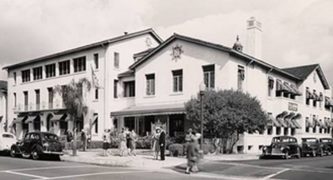

 0 comments
0 comments
